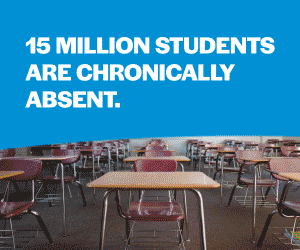This story originally appeared in Chalkbeat. Sign up for Chalkbeat’s free weekly newsletter to keep up with how education is changing across the U.S.
When the devout Muslim parents of a second grader learned their son would be reading a story at school about a prince who falls in love with a knight, they asked to opt him out.
The story about a man who marries another man after they team up to vanquish a dragon went against their religious teachings, the parents said. They wanted an alternative assignment.
The book in question, “Prince & Knight,” was one of several books that Maryland’s Montgomery County Public Schools added to its English curriculum in 2022 as part of a district initiative to put more books featuring LGBTQ characters in elementary school classrooms.
At first, the second grader was allowed to sit outside the classroom during discussions of the book. But a few days later, the district’s school board decided parents could no longer opt their kids out, later citing the volume of opt-out requests. Teachers would also stop informing families when they used one of the LGBTQ-themed books in class.
Many parents spoke out against that decision. The second grader’s parents and other families sued Montgomery County Public Schools to reinstate the opt-out option. Two federal courts let the no opt-out policy stand. Now, the Supreme Court — with a conservative majority that’s likely to be sympathetic to the burgeoning parental rights movement — is set to weigh in. Oral arguments in the case, Mahmoud v. Taylor, are scheduled for Tuesday. A decision is expected by June.
At the heart of the case is a longstanding tension between the power of parents to direct their children’s education and the authority of public schools to set their own curriculum. The high court’s ruling could decide whether parents have the right to opt their children out of any content that they see as at odds with their faith — and how far schools must go to accommodate them.
The case comes as Democrat-led states such as New Jersey, Illinois, and California have adopted curriculum that’s more inclusive, especially on topics of gender and sexuality. Meanwhile, Republican-led states like Florida, Georgia, and Louisiana have passed new laws that give parents more insight into what their kids are learning and the ability to opt out of certain lessons.
If the Supreme Court sides with the school district and decides parents don’t have the religious right to opt out, some say that could open the door to schools adopting curriculum without much regard for parent or community feedback. The views of minority parents, especially, could be ignored.
If the parents prevail, some worry schools would remove certain content altogether to lessen the chances of opt-out requests. That would be a set-back for schools and families that support efforts like those in the Montgomery County district to make curriculum more inclusive.
























